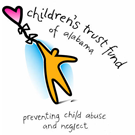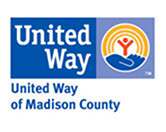Social Media Toolkit - Helping Parents Talk to Children About Internet Safety
This social media toolkit is intended to help educate parents and community members about child abuse prevention, specifically internet safety.
Many parents tell us they are confused about how to talk to their children about online safety. They are often overwhelmed by the new apps and games available to children. Share these posts to help educate the parents in your community. It's a great idea to tag the different partner organizations, like Common Sense Media and the National Center for Missing and Exploited Children in these posts. Feel free to add your organization’s contact information and any other details.
For research concerning child sexual abuse and prevention methods refer to our NCAC Research Bibliographies page in CALiO or visit CALiO.org.
WHY SOCIAL MEDIA? Social media is an outstanding tool in the fight against child abuse. Research shows that 80% of Americans believe social media is effective in raising public awareness about social issues including child abuse. At least half of the adult population in the United States uses social media. In other words, by posting child abuse prevention messages on your organization’s social media outlet – your chances of reaching the adults who need these messages are much higher. Our voices are stronger when we speak as one. Together, we can harness the power of social media to help make Alabama a safer place for our children.
Questions about this toolkit? Contact Pam Clasgens pclasgens@nationalcac.org.
Instructions
For Text: Highlight text. While text is highlighted, right click and choose copy. Navigate to social media page and in space intended for text right click the mouse and choose paste.
CLICK HERE TO DOWNLOAD IMAGES. Save file to computer. Upload video to social media page from saved location.








Talking with your child is the most effective tool to keep them safe online. Talk often about your family’s values and expectations, both online and off. Talk about healthy relationships. Demonstrate healthy boundaries in your own life. Involve your child in establishing rules for online gaming, apps, and times to disconnect.
Learn more from our partner National Center for Missing and Exploited Children https://bit.ly/3N8P7r7
Teach your child to recognize common ways online offenders entice children. It can start as innocently as “liking” a child’s online post and offering compliments. It often escalates to sexual conversations, requests, and sending explicit images. Tell your child, this person may even pretend to be younger, closer to the child’s age when they are really an adult. And it may even be someone they know in real life.
Learn more from our partners National Center for Missing and Exploited Children https://bit.ly/3xLlg2y
Parental control tools are just one part of keeping your child safe online. But they don’t teach a child how to make healthy choices and good decisions. You are the most vital part of the approach. Talk to your child about being considerate of others, thinking critically, and controlling impulses both online and off.
Learn more about parental controls here >>> https://www.connectsafely.org/controls/
Teens want to be liked and accepted, so they may enjoy interacting with someone who is giving them positive attention online. Predators know this and take advantage of it. Parental controls, monitoring, and setting limits are all helpful, but the most effective tool is for our teens to recognize certain situations, know what to say or type, and know when to get help.
Ask your teen what they would do in certain situations, so they think through the scenario in advance. Remind your teenager, sometimes the offender may even be someone they know in real life.
Learn more about how to talk with your teen using this resource from Common Sense Media https://bit.ly/39Oef8X
You don’t know everything they do about the games they play online, but you can still help them game more safely. Show interest in the games they play and ask your child questions, such as “Would you show me how to play your favorite games?” “Could we play together?” “How do you respond if someone bothers you while you’re gaming?” “What kinds of people do you game with?” “How much do you let people know about you when you’re gaming?”
Learn more https://bit.ly/3HLrKmH
Sexting is sending or distributing nude or partially nude images. You might also hear this referred to as sending “inappropriate selfies” or “nudes.” While research shows most teens are not sexting, teens who do take, send, or forward these images may face bullying or harassment from peers, problems at school, and possibly even trouble with college admission or getting a job.
Talk to your teens about the reality of sexting, what could happen, and how they plan to respond to a request. Remind them it is just as inappropriate to forward an inappropriate photo as it is to send one of themselves.
These resources from our partners at National Center for Missing & Exploited Children provide more information on talking to teens about sexting https://bit.ly/39GECxP
Sextortion is a type of blackmail used by the offender to acquire additional sexual content from the child, coerce them into sexual activity, or to obtain money from the child. They may be a former or current romantic partner who has a sexual image that was sent by the victim and are using it to get more content, threatening to send the picture to friends and family if the victim does not comply. Or the victim may have met the extorter online. It may be an individual or a coordinated group targeting victims to get more explicit content or money. Talk to your child often about your family’s expectations and values regarding healthy relationships, including having and respecting boundaries and consent. Teach your child that it is not okay to pressure someone or be pressured into behaviors that are uncomfortable or unsafe. Help your child understand that they should never forward or share sexts they receive from others.
Learn more from our partners at National Center for Missing & Exploited Children https://bit.ly/3QCcAUG
Taking away internet access entirely because a child made a mistake online rarely solves the problem. Taking away access can isolate them from their support system of friends and family. Try ways of giving consequences that don’t involve completely taking away their online access. Consider limiting their time online for gaming or socializing, or only allowing online activities in public areas of your home. Talk to them about how to better protect themselves and respect others online.
If your child is dealing with cyberbullies or potential online enticement, report it to the website, cell phone provider, law enforcement or CyberTipline.org.
Learn more https://bit.ly/3neN6Py










